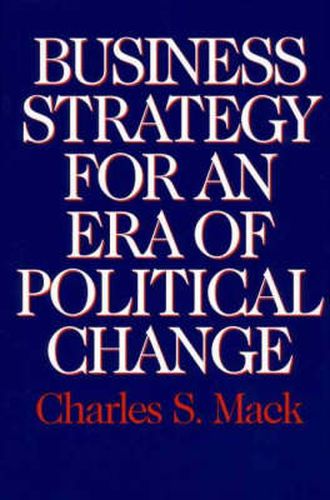Readings Newsletter
Become a Readings Member to make your shopping experience even easier.
Sign in or sign up for free!
You’re not far away from qualifying for FREE standard shipping within Australia
You’ve qualified for FREE standard shipping within Australia
The cart is loading…






American political parties will die out over the next quarter-century, to be replaced by major interest groups which are performing more and more of the parties traditional functions. With this foreseen, indeed imminent, demise of political parties in coming decades and the inevitable rise of alliances built on issues, not ideology, business organizations have no choice but to reappraise and replace their old ways of representing themselves to the community. Mack says it’s not enough anymore for corporations to help finance political campaigns or candidates alone. They must also involve themselves directly in the day-to-day tussle over ideas and issues. They must engage in issues advocacy. His book shows how issues advocacy is done, how it can be used as a lobbying technique, and how it can be adapted to influence, or participate in influencing, elections. Mack also proposes that the application of issues advocacy be extended to shape public opinion on certain large, global issues as well, issues that will remain on legislative agendas for decades–international trade, immigration, social security, the national savings rate, and campaign finance, among others. With model case histories to demonstrate how companies can use the various political instruments available to them and with an examination of the impact the 2000 election will have on the patterns and trends Mack discusses and analyzes here, this book will be important, useful reading for professionals in corporate-community relations and their public policy colleagues in the academic community.
$9.00 standard shipping within Australia
FREE standard shipping within Australia for orders over $100.00
Express & International shipping calculated at checkout
American political parties will die out over the next quarter-century, to be replaced by major interest groups which are performing more and more of the parties traditional functions. With this foreseen, indeed imminent, demise of political parties in coming decades and the inevitable rise of alliances built on issues, not ideology, business organizations have no choice but to reappraise and replace their old ways of representing themselves to the community. Mack says it’s not enough anymore for corporations to help finance political campaigns or candidates alone. They must also involve themselves directly in the day-to-day tussle over ideas and issues. They must engage in issues advocacy. His book shows how issues advocacy is done, how it can be used as a lobbying technique, and how it can be adapted to influence, or participate in influencing, elections. Mack also proposes that the application of issues advocacy be extended to shape public opinion on certain large, global issues as well, issues that will remain on legislative agendas for decades–international trade, immigration, social security, the national savings rate, and campaign finance, among others. With model case histories to demonstrate how companies can use the various political instruments available to them and with an examination of the impact the 2000 election will have on the patterns and trends Mack discusses and analyzes here, this book will be important, useful reading for professionals in corporate-community relations and their public policy colleagues in the academic community.